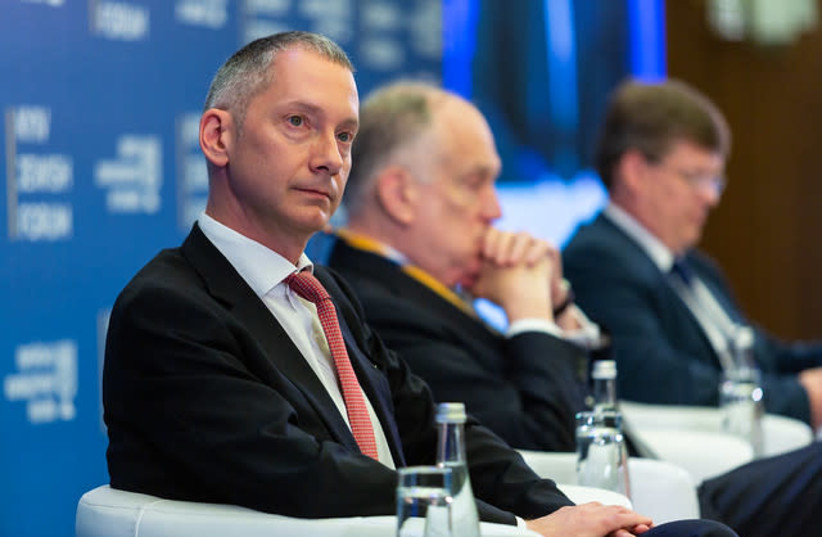The head of Ukrainian Jewry’s umbrella organization said that he understands Israel’s sensitivities regarding support for Ukraine but it should increase its humanitarian support for his country. “I understand Israel’s situation in regards to military support,” the president of the Jewish Confederation of Ukraine, Boris Lozhkin, told The Jerusalem Post. Lozhkin, who is also vice president of the Euro-Asian Jewish Congress and vice president of the European Jewish Congress, said, “I think that what is doable for Israel is a significant increase in humanitarian aid. I think it's possible and it's necessary for Israel to increase [its support] significantly. I don't see any reasons why Israel wouldn’t do so, I think it's just a question of time.” He explained that “Israel has huge expertise in the assistance for people in war and conflicts.” Lozhkin suggested that some ways Israel can assist Ukraine include donating toward the establishment of “hospitals and doctors to help Ukrainian soldiers, as well as seeing some issues of ammunition also, of course, which I know is a more sensitive issue,” he said.
Lozhkin is a Ukrainian entrepreneur, philanthropist and author. He founded a small media company in 1994, eventually growing it into one of the largest multimedia businesses in Eastern Europe. UMH Group’s portfolio encompassed internet, radio, and print, including the local rights to Forbes and Vogue. It was the first and only Ukrainian media group to be listed on the Frankfurt Stock Exchange. The company, which had been valued at around $400 million, was sold in 2013.
Lozhkin was elected as president of the Jewish Confederation of Ukraine in 2018 and also appointed vice-president of the World Jewish Congress.
He shared that he knows that Israel sees the importance of staying on good terms with Russia because of the security situation in Syria and the Iran nuclear threat. Yet he asked to be reminded that Russia is “using more and more Iranian weapons in Ukraine,” which is, in his opinion, “dangerous for Israel.”
When the war broke out, Lozhkin wasn’t in Ukraine, but rather in a European country. “I have a big work desk and I took out a paper and began writing a to-do list,” he shared. Lozhkin decided to become an informal ambassador of Ukraine on different fronts. “I started to connect with members of our Ukrainian Jewish community, with Ukrainian officials and with journalists from around the world in order to tell them what is really going on. I of course had to assist with friends and family as well.”

“There were people from all backgrounds, not only Jewish, that we assisted to escape the war. We also hosted refugees who had nowhere to go at the beginning of the war. We for instance assisted 27 people that we put up in a hotel in the Western part of Ukraine, in the mountains in order to be close to the border.”
“I immediately began participating in conferences with the International Jewish organizations and I explained to them the real situation of our communities.”
Lozhkin's view on the proposed amendment to the Law of Return
“Taking this right of return from Ukrainian Jews is terrible.”
Boris Lozhkin, president of the Jewish Confederation of Ukraine
When asked about the suggestion to amend the Law of Return, Lozhkin answered that he and his counterparts are “not happy with this suggestion,” and that “it's not fair,” since “there was antisemitism on the state level in the Former Soviet Union (FSU),” he said of the situation in Soviet times. “As a result of the antisemitism in the FSU, a lot of Jews changed nationality or their children’s nationality on their documents, in order to create a better future for their family.”
He added that “Ukrainian Jews know that they are Jewish since they have a Jewish grandfather or grandmother and suddenly within a short time they won’t be considered Jewish by Israel? It's absolutely not fair. Taking this right of return from Ukrainian Jews is terrible.”
